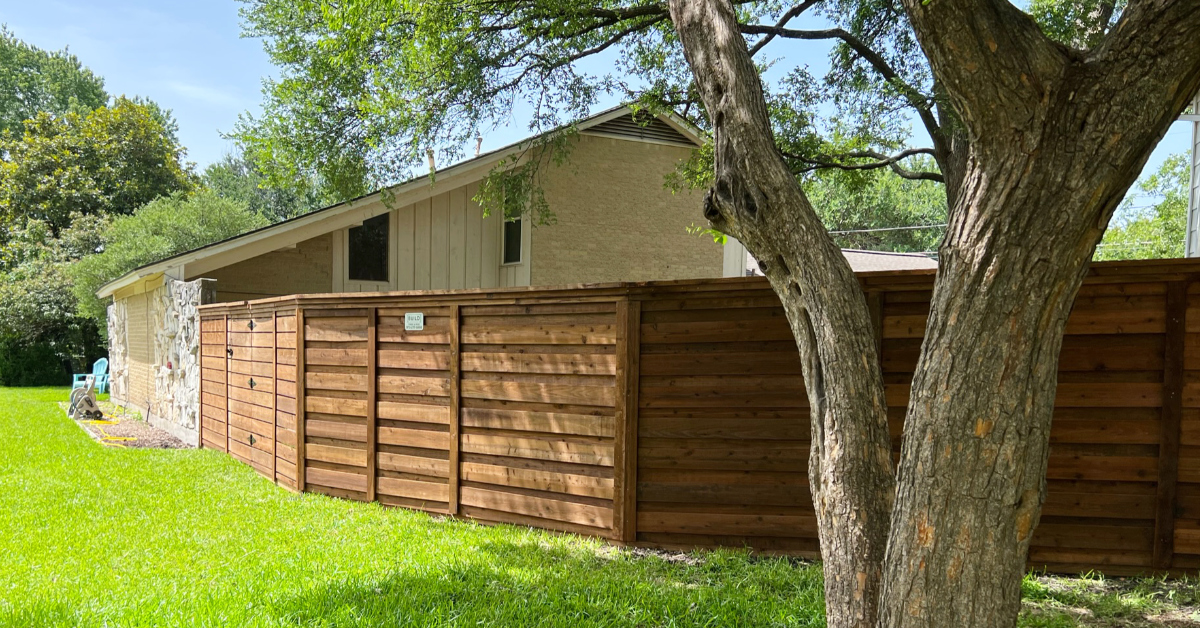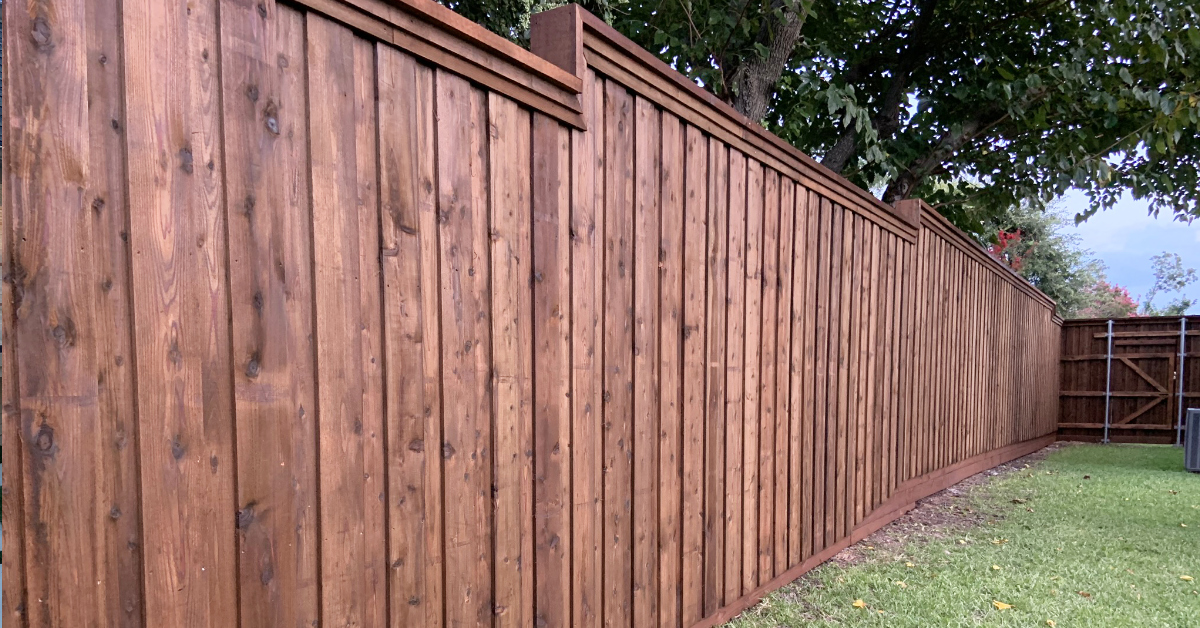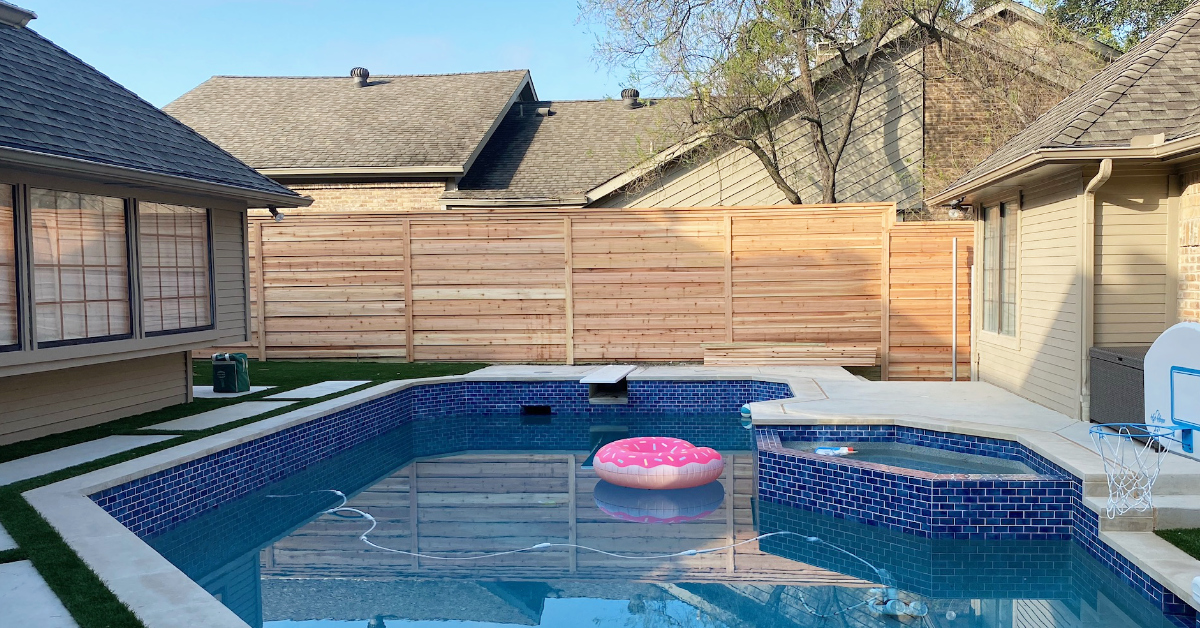Vertical Fences
Vertical fences have been the most popular choice for years. They have a very traditional look and can be quite simple, or custom crafted for beauty. As a general rule, vertical fences are less expensive because they are easier to build, have a wider fence post span, and pre-made fence panels can be used.
The vertical fence boards are attached to two or three horizontal fence stringers (usually two-by-fours) that run between fence posts spaced eight feet apart. Because the boards are vertical, they do not sag due to gravity. They are also great for properties that are uneven as they can be stair-stepped to match the contour of the ground.
Of course, the fence stringers themselves may sag due to gravity and vertical fences have the most weather-sensitive part of the fence board – the ends – facing upward and exposed to the elements. This can be minimized by adding a capping rail for protection.
Horizontal Fences
Horizontal fences have been increasing in popularity due to their unique, eye-catching design. They tend to look more contemporary and modern compared to traditional vertical fences. Plus the least weather-sensitive part of the board is side to side, which helps reduce deterioration.
Because the fence boards are sideways, the fence doesn’t require fence stringers, using less lumber overall. To help prevent the fence boards from sagging, the fence posts are spaced six feet apart and the quality of lumber used for the fence boards is higher. Both of these, in addition to pre-built panels not being available, lead to higher costs.
Though visually more stunning, the level of privacy is reduced. Anyone can peek right into your yard through the 1/8 gap between the boards – unless you go with a board on board design! And since the beauty of the horizontal fence is that they are level, it makes it hard to install (though not impossible) on a sloped ground.
Which Fence is Best for Your Property?
As with so many things, your budget, property, and design dreams will ultimately determine the horizontal vs vertical fence dilemma.
But if you are looking for a fence with a lower cost or on sloped ground, a traditional vertical fence is the best choice for you.
If you are looking for a more contemporary style and paying a little more for board on board quality lumber works for you, then a horizontal fence is the way to go.
If you have been looking for a company to answer your questions and build the right fence for your property, you have come to the right place. Build Outdoors serves the North Dallas area and would be proud to work with you.
Give us a call at 469.648.7726 or Get a Free Quote today.






